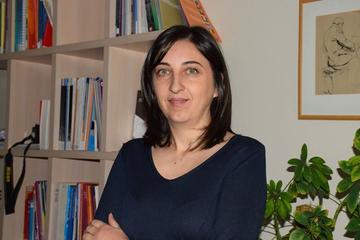
Albanian and Ukrainian journalists to be honoured at Bucharest event
The Central European Initiative (CEI) and the South East Europe Media Organisation (SEEMO), an affiliate of the International Press Institute (IPI), in special partnership with the Media Program South East Europe of the Konrad Adenauer Stiftung (KAS), have named Albanian journalist Aleksandra Bogdani and Ukrainian journalist Nadia Burdey winners of the 2015 “CEI SEEMO Award for Outstanding Merits in Investigative Journalism”.
Bogdani is being honoured under the “Professional Journalists” section and Burdey under the “Young Professional Journalists” section. The pair will receive their awards – which are offered by the CEI and carry respective prizes of €4,000 and €1,000, at the South East Europe Media Forum (SEEMF), to be held in Bucharest, Romania from Nov. 5 to 6, 2015.
An investigative journalist and editor at the Balkan Investigative Reporting Network (BIRN) in Albania, Bogdani has been recognised for her overall professional achievements as an intrepid reporter covering complex stories of human trafficking, organised crime and child abuse, corruption and national security. With more than a decade of experience working as a reporter, editor and deputy editor in chief in different media outlets in Albania – including the dailies Mapo and Shekulli, and Top News TV – she particularly impressed the jury, CEI said, with the courage she showed as a woman producing an in-depth series of six investigations on the network of recruiters who send hundreds of Albanian Muslims off to fight in the Syrian civil war as jihadists for the Islamic State group and the al-Nusra front.
Burdey is being honoured as a promising young journalist who follows high professional standards in a difficult environment in which those standards are not widespread, CEI said. Working in ZIK TV’s weekly investigative program “Our money”, which focuses on corruption in state procurement and abuse of power, she reported on conflicts of interest between business and politics, which remain an important topic in Ukraine. Notably, her recent investigation about the illegally acquired and undeclared property of Ukraine’s deputy minister of Internal Affairs resulted in the official’s resignation.
Montenegrin reporters Mirko Boskovic (RTCG) and Vlado Otasevic and Ana Komatina (CIJ Montenegro) received a special mention from CEI and SEEMO for their contribution to the advancement of investigative journalism in their country. In particular, Boskovic launched the investigative show “Mechanism” on RTCG in March 2015, marking a historical breakthrough for Montenegro’s public broadcaster as its first noticeable criticism of official policy. Otasevic and Komatina jointly published a number of relevant investigations as members of the newly formed Center for Investigative Journalism Montenegro (CIJ Montenegro), including the exposure of a secret dual citizenship agreement between Montenegro and Serbia.
Twenty-five nominations, covering eight countries, were submitted for the Award this year, demonstrating its impact and relevance across the region.
Members of the independent, international jury, who made their decisions by majority vote, included Besar Likmeta (Albania), editor for the Balkan Investigative Reporting Network (BIRN); Saša Leković (Croatia), an investigative journalist, trainer and media advisor in SEE countries, president of the Investigative Journalism Center and president of the Croatian Journalists’ Association; Luka Zanoni (Italy), editor-in-chief of Osservatorio Balcani e Caucaso; Marina Constantinoiu (Romania), journalist/editor-in-chief of mariustuca.ro ; Istvan Deak, SEEMO Romania deputy; Paweł Pieniążek (Poland), journalist/reporter specialising in Ukraine and Eastern Europe, and contributor to Dziennik Opinii, New Eastern Europe, Polish Radio.
The overall Award coordination was managed by Barbara Fabro (CEI), Oliver Vujovic (SEEMO) and Christian Spahr (KAS Media Program South East Europe).
This publication has been produced within the project European Centre for Press and Media Freedom, co-funded by the European Commission. The contents of this publication are the sole responsibility of Osservatorio Balcani e Caucaso and its partners and can in no way be taken to reflect the views of the European Union. The project's page

 CEI, SEEMO name investigative journalism award winners
CEI, SEEMO name investigative journalism award winners




 All the contents on the Osservatorio Balcani e Caucaso website are distributed with a
All the contents on the Osservatorio Balcani e Caucaso website are distributed with a 